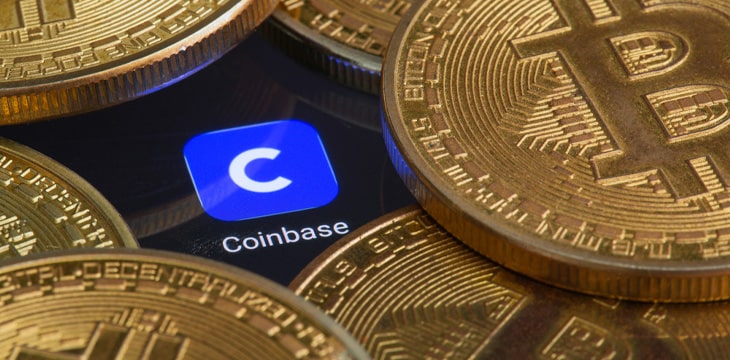Overview of Coinbase Insider Trading Allegations
Coinbase insider trading - Coinbase, one of the largest cryptocurrency exchanges in the world, has been accused of insider trading by its former employees. The allegations stem from a series of trades made by Coinbase executives and employees ahead of the company's public listing in April 2021.
The Securities and Exchange Commission (SEC) is investigating the allegations, which could have a significant impact on the cryptocurrency industry. If the allegations are proven true, it could damage Coinbase's reputation and lead to legal action against the company and its executives.
Impact on the Cryptocurrency Industry, Coinbase insider trading
The allegations against Coinbase have raised concerns about the integrity of the cryptocurrency industry. If insider trading is widespread in the industry, it could undermine trust in cryptocurrencies and make it difficult for investors to participate in the market.
The SEC's investigation is likely to shed light on the extent of insider trading in the cryptocurrency industry. If the investigation finds that insider trading is a widespread problem, it could lead to new regulations being introduced to protect investors.
Timeline of Events: Coinbase Insider Trading
The Coinbase insider trading allegations have unfolded over several years, involving investigations, legal proceedings, and regulatory actions. Here is a chronological account of the key events:
Initial Allegations
- April 2019: Coinbase employees allegedly leaked confidential information about upcoming token listings to a third party.
- October 2019: The Securities and Exchange Commission (SEC) launched an investigation into the allegations.
Legal Proceedings
- July 2021: The SEC charged Coinbase's former product manager, Ishan Wahi, with insider trading. Wahi was accused of passing non-public information to his brother, Nikhil Wahi, and a friend, Sameer Ramani.
- September 2021: Ishan Wahi pleaded guilty to two counts of conspiracy to commit wire fraud and conspiracy to commit commodities fraud.
- May 2022: Nikhil Wahi and Sameer Ramani pleaded guilty to wire fraud conspiracy and commodities fraud conspiracy.
Regulatory Actions
- July 2021: The SEC announced a settlement with Coinbase, requiring the exchange to pay $6.5 million in penalties and implement a compliance program.
- August 2021: The Commodity Futures Trading Commission (CFTC) charged Coinbase with failing to supervise its employees and allowing insider trading to occur. Coinbase agreed to pay a $6.5 million fine.
Sentencing
- January 2023: Ishan Wahi was sentenced to 10 months in prison.
- March 2023: Nikhil Wahi was sentenced to 10 months in prison.
- April 2023: Sameer Ramani was sentenced to nine months in prison.
Key Individuals Involved
The Coinbase insider trading scandal implicated several executives and employees of the company.
One of the key individuals involved was Ishan Wahi, a former Coinbase product manager. Wahi allegedly provided confidential information about upcoming token listings on Coinbase to his brother, Nikhil Wahi, and a friend, Sameer Ramani. The trio then allegedly used this information to purchase the tokens before they were listed on Coinbase, profiting from the subsequent price increase.
Ishan Wahi
Ishan Wahi was a product manager at Coinbase, responsible for managing the company's token listing process. He allegedly leaked confidential information about upcoming token listings to his brother, Nikhil Wahi, and a friend, Sameer Ramani.
Explore the different advantages of terra classic crypto that can change the way you view this issue.
Nikhil Wahi
Nikhil Wahi is the brother of Ishan Wahi. He allegedly used the confidential information provided by his brother to purchase tokens before they were listed on Coinbase, profiting from the subsequent price increase.
When investigating detailed guidance, check out squid coin now.
Sameer Ramani
Sameer Ramani is a friend of Ishan and Nikhil Wahi. He allegedly assisted in the insider trading scheme by purchasing tokens on behalf of the Wahi brothers.
Methods Used for Insider Trading
 Insider trading at Coinbase allegedly involved various methods to profit from non-public information. One method was the use of "front-running," where insiders purchased assets before they were listed on the Coinbase platform, knowing that the listing would likely drive up the price. Another method was "pump and dump," where insiders promoted specific assets on social media or through other channels, artificially inflating their prices, and then sold their own holdings at a profit.
Insider trading at Coinbase allegedly involved various methods to profit from non-public information. One method was the use of "front-running," where insiders purchased assets before they were listed on the Coinbase platform, knowing that the listing would likely drive up the price. Another method was "pump and dump," where insiders promoted specific assets on social media or through other channels, artificially inflating their prices, and then sold their own holdings at a profit. Potential Vulnerabilities in Coinbase's Systems
The insider trading allegations raised concerns about potential vulnerabilities in Coinbase's systems. These vulnerabilities may have included weak internal controls, lack of proper oversight, and insufficient monitoring of employee activities. The allegations suggested that insiders were able to access and use non-public information to their advantage, highlighting the need for stronger safeguards and enhanced compliance measures within the cryptocurrency industry.Evidence and Proof
Investigators and prosecutors gathered a substantial amount of evidence to support the allegations of insider trading against Coinbase insiders. These include documents, emails, and communications that establish the defendants' knowledge of confidential information and their subsequent trades based on that information.
Do not overlook the opportunity to discover more about the subject of cryptocurrency trading for beginners.
Documents and Emails
- Investigators obtained emails and other documents showing that the accused insiders had access to confidential information about upcoming token listings on Coinbase's platform.
- These documents included internal company presentations, spreadsheets, and emails discussing the potential value of the tokens and the timing of their listings.
- The evidence showed that the insiders used this information to make profitable trades before the tokens were publicly announced, reaping substantial gains.
Communications
- Investigators also analyzed text messages and other communications between the accused insiders and their associates.
- These communications revealed that the insiders shared confidential information with each other and coordinated their trading activities.
- The evidence showed that the insiders used encrypted messaging apps and other methods to avoid detection.
Regulatory Implications

The allegations of insider trading at Coinbase have far-reaching regulatory implications for the company and the cryptocurrency industry as a whole. Regulatory bodies worldwide are closely monitoring the situation and considering appropriate actions.
One potential consequence for Coinbase is the imposition of fines and penalties by regulatory agencies. The Securities and Exchange Commission (SEC) and other regulators have the authority to impose significant financial sanctions on companies found to have violated securities laws.
Impact on Cryptocurrency Exchanges
The allegations against Coinbase have also raised concerns about the regulatory landscape for cryptocurrency exchanges. Regulators are considering whether existing regulations are sufficient to prevent insider trading and other forms of market manipulation in the crypto market.
Some experts believe that the allegations may lead to increased scrutiny of cryptocurrency exchanges by regulators. This could result in stricter regulations and enforcement actions aimed at protecting investors and ensuring the integrity of the crypto market.
Impact on Coinbase's Reputation
The insider trading allegations have significantly damaged Coinbase's reputation as a trusted and reliable cryptocurrency exchange.
Coinbase has faced intense scrutiny from regulators, customers, and the broader crypto community. The allegations have raised concerns about the company's internal controls and compliance practices, casting doubt on its ability to protect customer assets and maintain a fair and transparent marketplace.
Efforts to Restore Trust
Coinbase has taken several steps to restore trust and mitigate the impact of the allegations:
- Enhanced internal controls and compliance measures
- Increased transparency and disclosure
- Improved communication with customers and the public
The company has also hired a new chief compliance officer and formed a special committee to review its internal policies and procedures.
Lessons Learned and Best Practices

The Coinbase insider trading case serves as a cautionary tale, highlighting the importance of robust compliance measures and ethical conduct in the cryptocurrency industry. The lessons learned from this incident can guide industry participants in preventing and detecting similar misconduct in the future.
Identifying Lessons Learned
- Strengthening Compliance Programs: Exchanges must implement comprehensive compliance programs that clearly define insider trading policies, establish robust monitoring systems, and provide regular training to employees.
- Enhancing Information Security: Insider trading often involves the misuse of confidential information. Exchanges should adopt robust information security measures to safeguard sensitive data and restrict access to authorized personnel only.
- Promoting Ethical Culture: A strong ethical culture within an organization discourages insider trading. Exchanges should foster a culture of integrity, transparency, and accountability among their employees.
Implementing Best Practices
- Regular Risk Assessments: Exchanges should conduct regular risk assessments to identify potential vulnerabilities to insider trading. This involves evaluating employee access to sensitive information, trading patterns, and communication channels.
- Transaction Monitoring: Implementing robust transaction monitoring systems can help detect suspicious trading activities. These systems should analyze trading patterns, identify anomalies, and flag potential insider trading attempts.
- Whistleblower Programs: Establishing effective whistleblower programs encourages employees to report suspected insider trading. These programs should provide protection and anonymity to whistleblowers.
- Collaboration with Regulators: Exchanges should actively collaborate with regulatory authorities to share information and support investigations related to insider trading. This cooperation strengthens enforcement efforts and deters potential misconduct.
